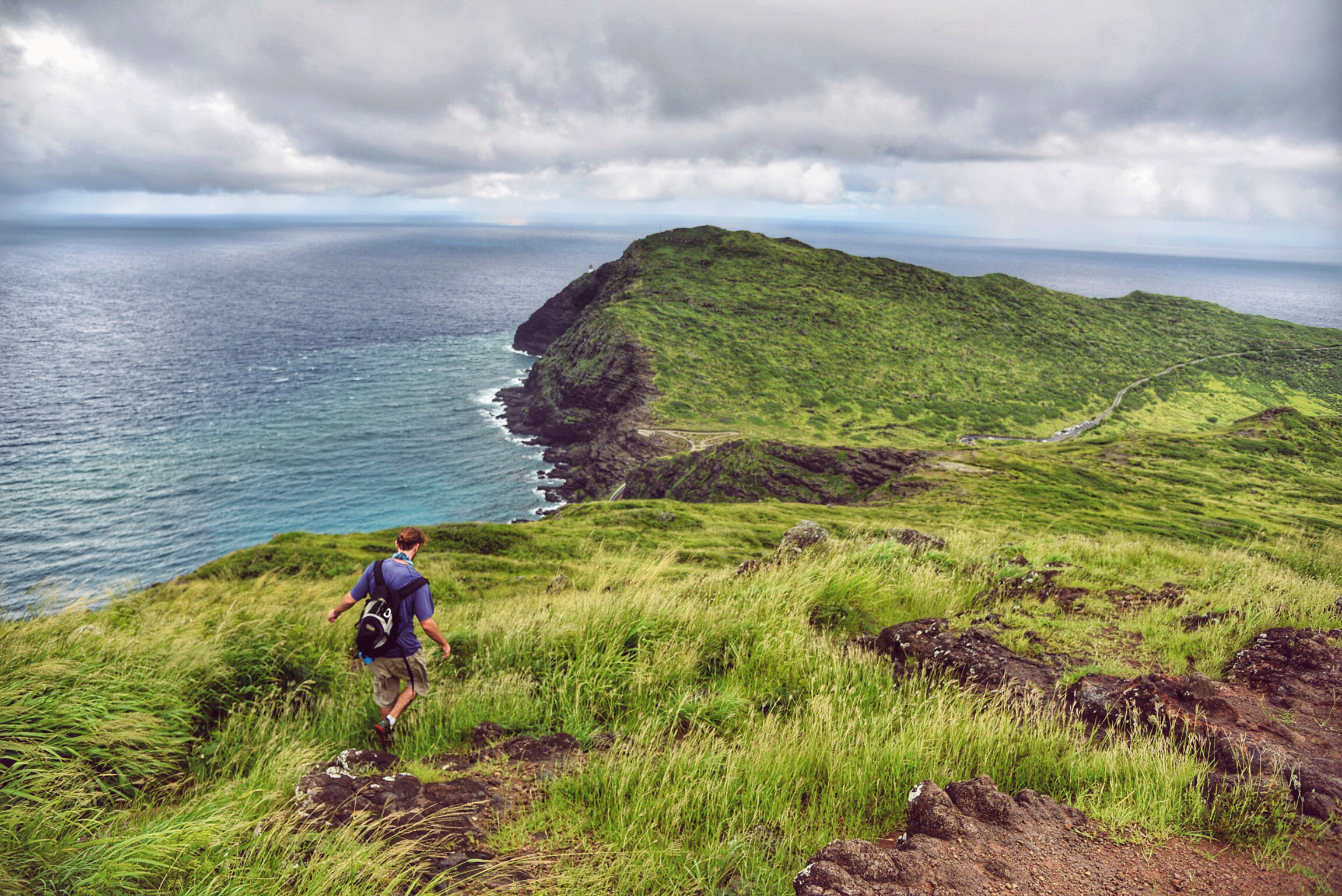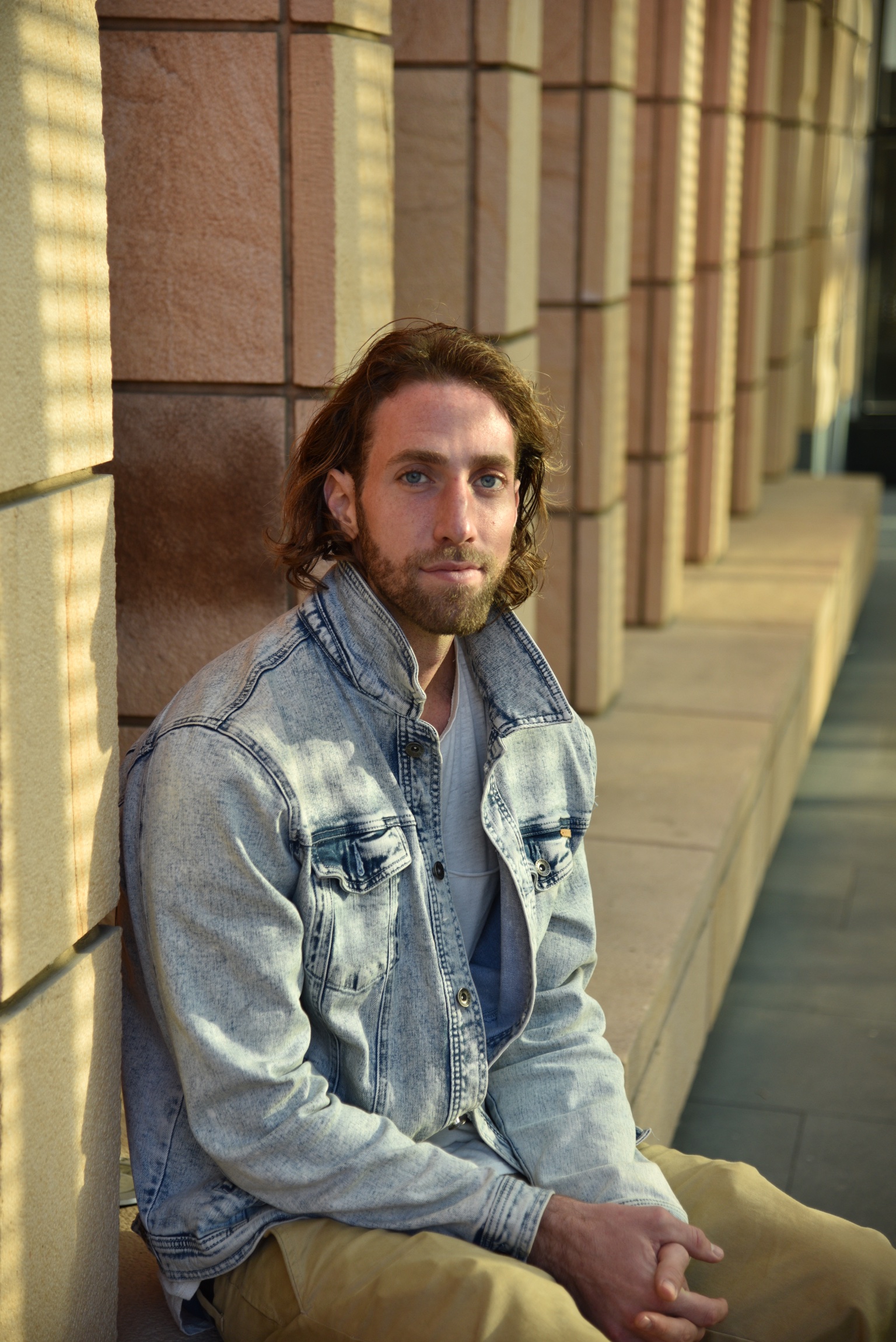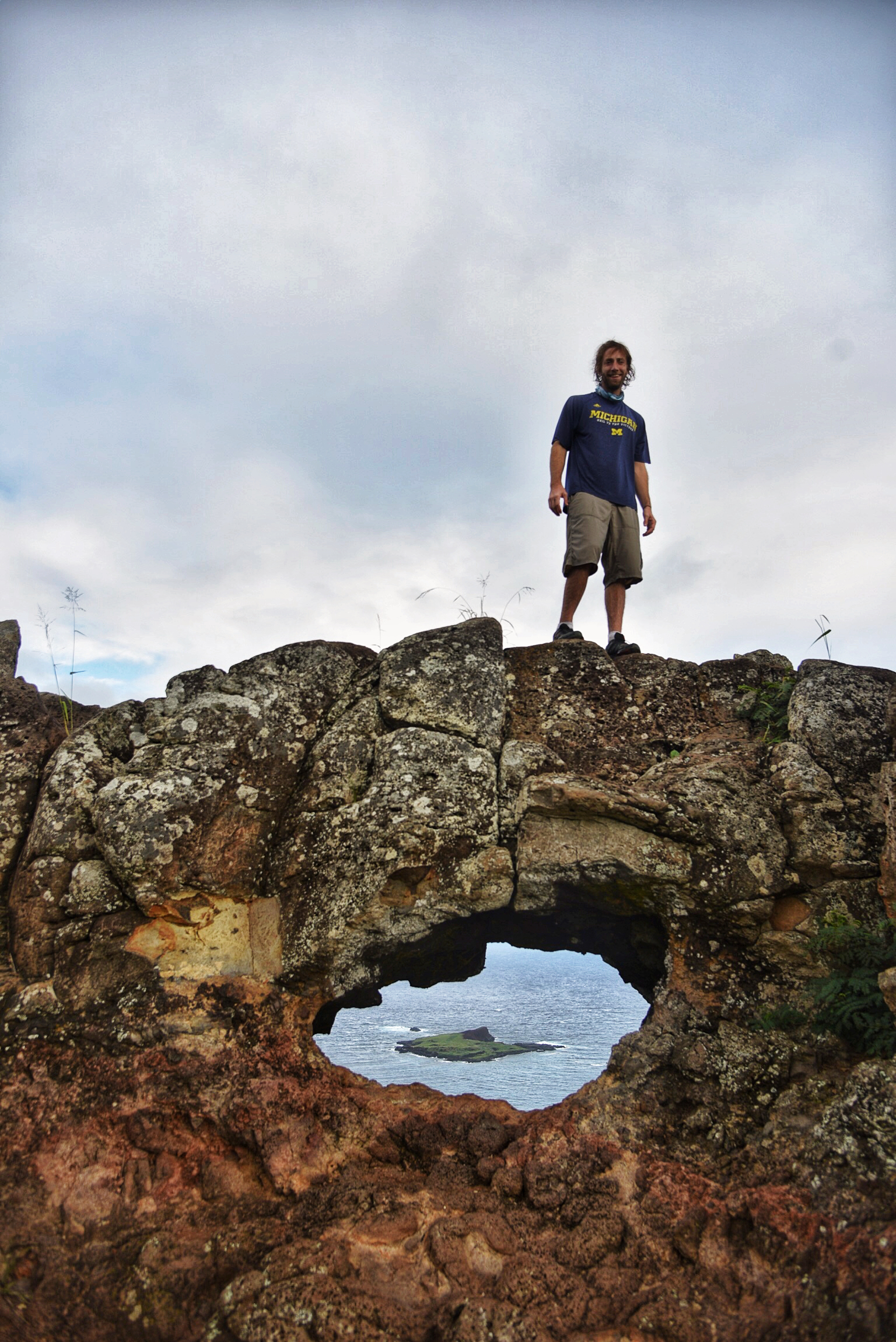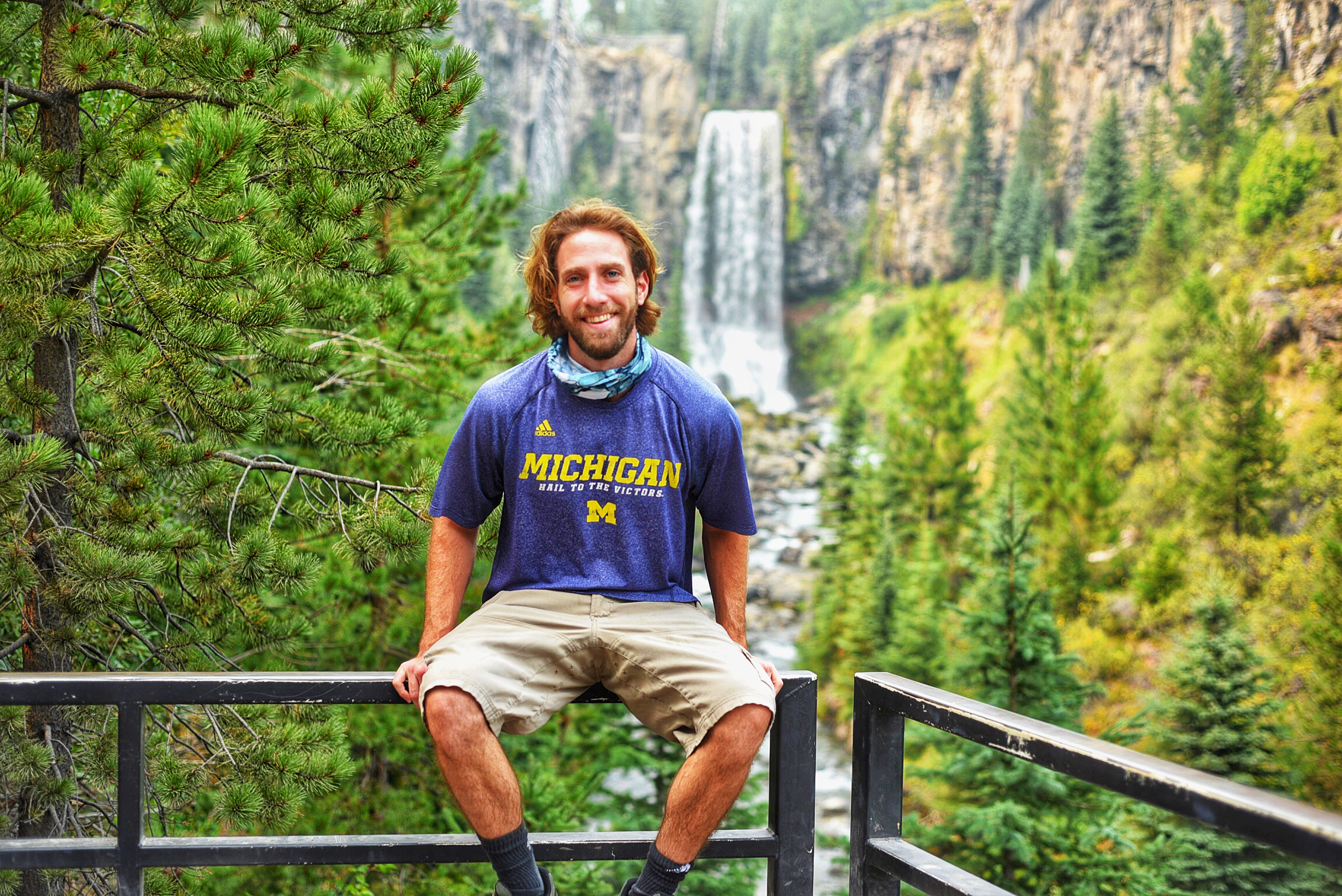I'm unsure how I can begin tackling the ambitious challenge of an "about me." How can I explain my transition from neuroscience and pre-med, to biomedical engineering and entrepreneurship, to spirituality and nature-based practice, to travel and storytelling comprehensively and concisely? I'm hesitant to just post my accomplishments devoid of any context. An about me isn't about what I've done; it's about my life story.
Maybe it's best to start with an early memory. At the age of four, I remember the frustration I felt sitting on the black leather seat of my dad's car, realizing I could flip a coin one million times, and I would never know beforehand what side it would land. At that moment, I realized something larger: I would always have more questions and never have all the answers. Little did I know then that my personal journey would be about following the questions that linger.
As an adolescent, the main question I had was: How could I help others, enjoy my work, and support myself simultaneously? I loved math and science, and I loved business. In actuality, I was good at them and equated proficiency with love. I decided my path would be whatever intersection I could find between science, math, and business.
At the beginning of my collegiate years, I studied neuroscience at the University of Michigan. I was to become a doctor. Yet, I wasn't ready to close the door to entrepreneurship. I found solace in rationalization. I told myself, "I could be a practicing doctor with an enterprising attitude." The first moment, which really shook my world, came while volunteering on ambulances in Israel. My initial clinical experience involved failing to resuscitate a patient with CPR as the patient's wife looked on. Feeling devastated and lacking hope in Western medicine, I made a pivotal decision: I would put my energy into biomedical engineering and entrepreneurship. I wanted to innovate the tools healthcare professionals used rather than practice medicine. It was the intersection between math, science, and business that I had sought.
In Fall 2013, I stumbled into a university course on meditation... and I hated it. I couldn't sit in silence nor understand why we had to feel our breathing or walk outdoors and feel our footsteps. I remained in the course only because I was too lazy to switch out of it. But, something happened mid-way through the semester. At times, I noticed that I felt different: my friends and I interacted more fluidly, leaves and trees appeared more colorful, and my thinking became clearer.
It was evident that something about watching my breathing and being in nature was promoting my wellbeing. I didn't quite understand what that was, but I dove headfirst, absorbing all I could to support an internal journey. I took several more classes with my teacher, a Quechua medicine woman, on meditation, nature-based mindfulness, and deep spiritual ecology (you can find the work of my teacher, Martha Travers, here: http://natureandhealing.org). I started to practice ashtanga yoga. And most importantly, each day, I would immerse myself in silence and solitude in the natural world.
The story doesn't end there, though. After a year of contemplative practice, I wasn't free from all aversions. At the end of 2014, I got into a foolish altercation. The result was a life-threatening traumatic brain injury (TBI). Ironically, an injury that almost took my life gave me more life. Each moment took on its own weight, feeling inherently valuable and precious.
Soon after, I started teaching meditation and nature-based mindfulness to gyms, corporations, and student organizations.As my university years came to a close, I was still a biomedical engineering student who was now flourishing in entrepreneurship. My graduate team and I created a medical device, distinguished as the 2nd place winner in the National Medical Design Excellence Awards. I was working on a project with a team of neuroscientists to innovate the helmets used in contact sports. I was teaching entrepreneurship and being invited to join exclusive organizations.
To an outside observer, the path would have seemed laid out for me with biomedical engineering and entrepreneurship. But, as I continued with meditation, yoga, and nature-based practice, I found deeper meaning in things that were diametrically opposed to my degree. I became less interested in medical devices and more interested in the wellbeing found outdoors and spreading this experience to others.
In my last year of graduate school, I heard of the Bonderman Fellowship, a grant given to four students to travel alone and immerse in non-Westernized cultures for eight consecutive months. I felt I had much to learn yet had gotten all I desired from the rigid boundaries of Western academia. I applied to the fellowship to see how a spiritual understanding could be integrated with a Western scientific framework. I wanted to learn from how traditional nature-based cultures lived with the natural world.
As a Bonderman Fellow, I solo-traveled to 10 different countries from August 2016 – August 2017 and lived with tribes and villages across Borneo, the Himalayas, the Andes, and the Amazon. I firmly believe that travel doesn't change you; it makes you more you. Without parents, friends, and teachers, you learn to follow your own interests and ask your own questions. I entered my travels as a biomedical engineer and left as a storyteller. During my time traveling, the essay I submitted titled "A Voice In Nature's Choir" was awarded an honorable mention in the International Essay Competition for Young People, one of only 64 essays to place or receive mention out of over 15,000 applications from over 150 countries: http://scotthaber.com/2017/10/30/voice-natures-choir/.
Traveling to non-western regions also exposed me to the pervasive spread of modernization, portraying how detrimental it can be to psychological and ecological welfare. Resultantly, I knew I had to devote myself and the stories I would tell to forming new narratives and institutions that promote life instead of systematically destroying it. I am most interested in the relationship between humans and the natural world and how re-kindling this once universal bond can promote a healthier planet with healthier people.
Along the way, I have shaped into myriad roles to serve different needs at different times. I worked as the first in-house editorial producer for Summit (Summit.co), a global collective comprised of the world's most influential change-makers. Notably, I interviewed their main speakers at their flagship event in LA, creating editorials around the interviews. You may find some of the interviews with Ray Dalio, Eckhart Tolle, Peter Diamandis, etc. published in the "essays and philosophy" section. I have continued to offer meditation and nature-based mindfulness instructions, giving workshops in Bolivia and Peru, working with individual clients in the states, and guiding hiking excursions in the Smokey's and the Rockies. Last, at the height of the pandemic, I started day-trading. Beyond financial gains, I acquired an economic lens through which to view the world, deep-diving into the policies that move markets, the technical analysis that moves securities, and the social dynamics and narratives that make or break projects. Investing in financial markets led me into venture capital and cryptocurrency. I found my way into rounds investing in L1's, farming Chia, which promises to be the "most green" cryptocurrency and supporting African fintech giant, Flutterwave.
Currently, the lion's share of my time is devoted to working with individuals and writing a book titled "Insecurity. The Limited Past, The Wounded Present, and The Beautiful Future." The book explores how our external worlds condition our internal worlds, using an evolutionary perspective to unravel the drivers behind the ill-being pervasive in modernity.
What continues to be one of the most important constructs in my life is a connection to nature. As a storyteller with a visceral love for the outdoors, nature isn't only where I go to recharge; it's a source of continual inspiration, the foundation for these words, and the direction of my service.
As the author and philosopher Charles Eisenstein said, I hesitate to call any of this "my" work; it isn't mine. It is constituted through a collage of experiences: interactions, observations, books, and those who sustain my inspiration to continue doing this work.
I hope this work can provoke systemic questioning and make you feel a little more connected to those we walk among.
Sincerely Yours,
Scott
Intellectual Inspirations:
Daniel Schmachtenberger, Charles Eisenstein, Martha Travers, Alan Watts, David Abram, Richard Louv, Robert Wright, Henry David Thoreau, Edward Abby, Daniel B. Quinn, Gary Snyder, Nietzsche, Jack Kornfield, Joseph Campbell, Victor Frankl, Ken Wilber, Thich Nhat Hahn, James Carse, Angela Jamison.



